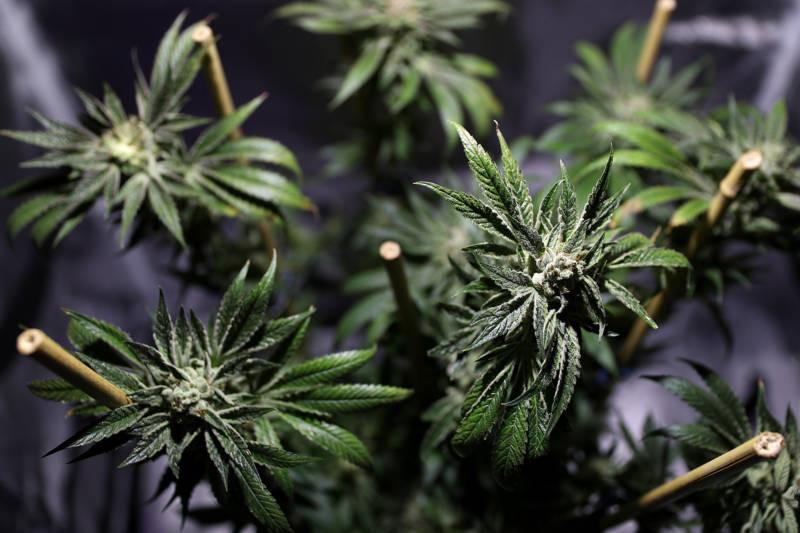The Food and Drug Administration held its first public hearing on CBD last Friday. The cannabis extract has quickly grown into a billion-dollar industry, and the FDA expects the results will help officials determine how to regulate CBD products.
The compound can be extracted from marijuana or from hemp. It’s promoted as a way to ease anxiety and inflammation — and it doesn’t get people high because it doesn’t contain THC, the psychoactive component of the cannabis plant.
People are using oils with cannabidiol, or CBD, to help with everything from menstrual cramps to insomnia. While the hype around CBD has gotten ahead of the science, there are a growing number of small studies that do point to some health benefits. But the FDA has concerns over how these products are marketed, and is seeking more data about their safety.

